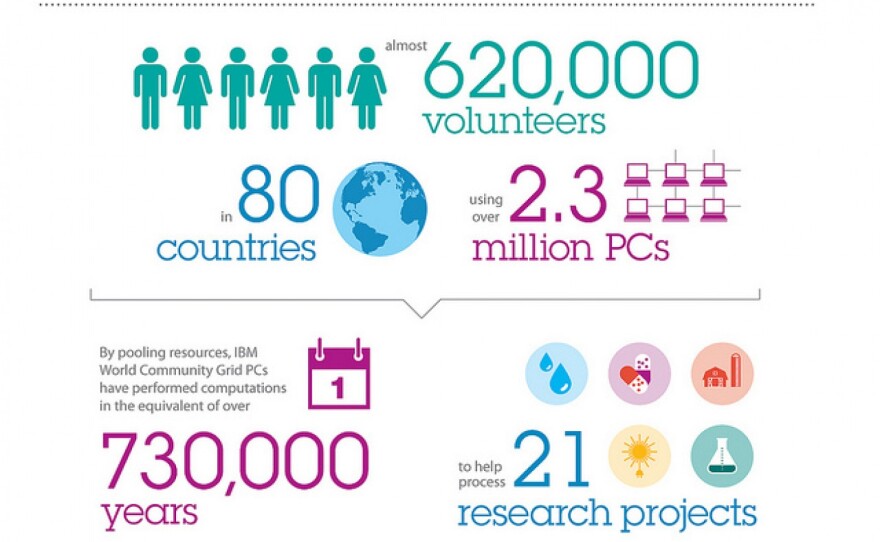The Scripps Research Institute Wednesday announced an initiative in which people can make their idle computers and mobile devices available to scientists looking for compounds to treat the deadly Ebola virus.
The "Outsmart Ebola Together" volunteer computing project is being run by the Ollmann Saphire laboratory at TSRI, which has mapped the structures and vulnerabilities of the proteins comprising the Ebola virus.
More attention is going into Ebola research following a deadly outbreak of the virus in West Africa. The flare-up resulted in the first cases ever in this country.

In the program, anyone with access to a computer or Android-based mobile device can download a safe and free application that will put their devices to work when the machines would otherwise be idle. With their collective processing power, the computers will form a virtual supercomputer to help TSRI screen millions of chemical compounds to identify new drug leads for treating Ebola.
The devices will remain fully available for normal use by their owners, according to TSRI.
READ MORE: Judging An Ebola Drug In The Middle Of A Crisis
The La Jolla-based research organization will run the program in partnership with the IBM World Community Grid, which has been making similar data-driven health and sustainability initiatives possible for 10 years as a free service to the science community.
According to TSRI, the best candidate compounds that emerge from this crowdsourced effort will be physically tested in a lab to pinpoint their effectiveness against a real virus infection. The most promising compounds will be modified to perform even better, at lower concentrations, and with fewer side effects.
Subsequent drug trials could ultimately lead to an approved medicine, the scientists said.
"Our molecular images of the Ebola virus are like enemy reconnaissance," said Dr. Erica Ollmann Saphire of TSRI. "These images show us where the virus is vulnerable and the targets we need to hit. In the Outsmart Ebola Together project, we will be able to harness World Community Grid's virtual supercomputing power to find the drugs we need to aim at these targets."
The World Community Grid has provided nearly 3 million computers and mobile devices for use on research projects over the last decade.
TSRI said increasing computer power will dramatically accelerate the process of identifying a cure. The speed and scale of a drug search is essential, because the lethal disease continues to spread and mutate.
Ebola has also become more of an international threat because people are more mobile than ever.
According to the U.S. Centers for Disease Control and Prevention, nearly 11,000 cases of Ebola have been confirmed this year in Guinea, Liberia and Sierra Leone, causing more than 6,000 deaths. The CDC believes there have been more than 17,000 cases overall, including those that have not been confirmed in a laboratory.
In the U.S, there have been four cases, with one fatality.






